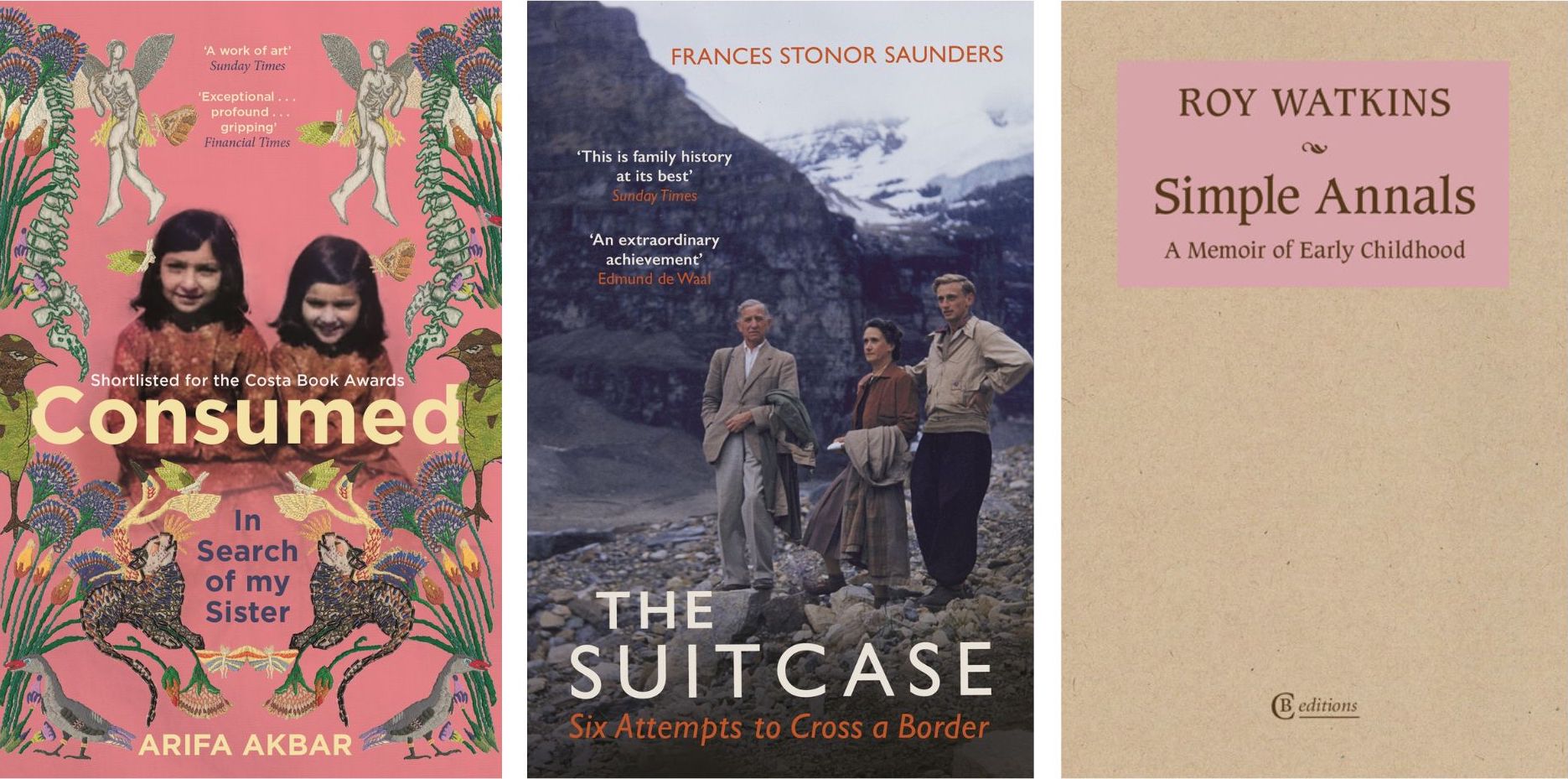
English PEN is pleased to announce the shortlist for the PEN Ackerley Prize 2022 for memoir and autobiography.
The shortlisted titles are:
Arifa Akbar, Consumed: A Sister’s Story (Sceptre)
Frances Stonor Saunders, The Suitcase: Six Attempts to Cross a Border (Jonathan Cape)
Roy Watkins, Simple Annals: A Memoir of Early Childhood (CB Editions)
The winner of the prize, which celebrates its 40th year in 2022, will be announced at a special event featuring the shortlisted authors in conversation with the Chair of the judges, Peter Parker at The London Library (Thursday 14 July, in person and online) as part of the ongoing partnership between English PEN and The London Library.
The PEN Ackerley Prize was established in memory of Joe Randolph Ackerley (1896–1967), the author and long-time literary editor of The Listener magazine. The prize is awarded annually to a literary autobiography of outstanding merit, written by an author of British nationality, and published in the UK in the previous year.
The PEN Ackerley Prize is judged by biographer and historian Peter Parker (Chair), writer and editor Michael Caines, author Georgina Hammick, and writer and critic Claire Harman. The winner receives a cheque for £3,000.
Daniel Gorman, Director, English PEN, said:
‘Congratulations to all the shortlisted authors for this year’s PEN Ackerley Prize, and our deepest thanks to the panel of judges for bringing together such a strong and varied shortlist. The PEN Ackerley Prize aims to celebrate outstanding literary autobiography, and this shortlist highlights how much of the world in all its variance can be encapsulated within this aim.’
Peter Parker, Chair of the Judges, said:
‘This year marks the fortieth anniversary of the founding of the PEN Ackerley Prize, and the judges called in a bumper 34 autobiographies and memoirs published in 2021. Over a period of six or so months we whittled down these books to eight possible contenders for the prize. Then, during a long meeting on a hot June day, we produced this shortlist of three books that all deal with families but are markedly different in the approach their authors take to the art of memoir.’
Arifa Akbar’s Consumed (Sceptre) describes the author’s troubled relationship with her older sister, a talented and unusual artist who, having developed eating disorders and other mental health problems, died suddenly and unexpectedly of undiagnosed tuberculosis. From this central tragedy the book opens out to explore sibling relationships and the tubercular heroine in literature, painting, theatre and opera, and provides a superbly crafted and fearlessly frank account of family dynamics, cultural dislocation, and the complexities and shortcomings of medical practice.
Frances Stonor Saunders’ The Suitcase (Jonathan Cape) describes the author tracing her father’s years of enforced youthful wanderings after fleeing Romania in 1940 before he eventually came to Britain. In doing so Stonor Saunders hopes better to understand a man with whom she had a complex relationship – so complex that she is fearful of opening the suitcase of papers he left behind at his death. Skilfully constructed and beautifully written, with a wholly unexpected but satisfying conclusion, the book combines history and memoir to create a haunting meditation upon family, identity, boundaries and belonging.
Roy Watkins’ Simple Annals (CB Editions) is an intensely visualised evocation of the author’s early childhood in Lancashire during the 1940s and ‘50s, a world he shared with family, friends and local people. Unusually for a memoir, it restricts itself to the author’s first eleven years, reaching back to his very earliest memories. Highly original in form, it is a kind of prose poem, and like memory itself, is made up of vivid fragments, bright flashes that illuminate a specific time and place and recreate the sheer oddness of ‘ordinary’ life as perceived by a small boy.
We congratulate the three authors and urge everyone to buy and read these stimulating and hugely enjoyable books.